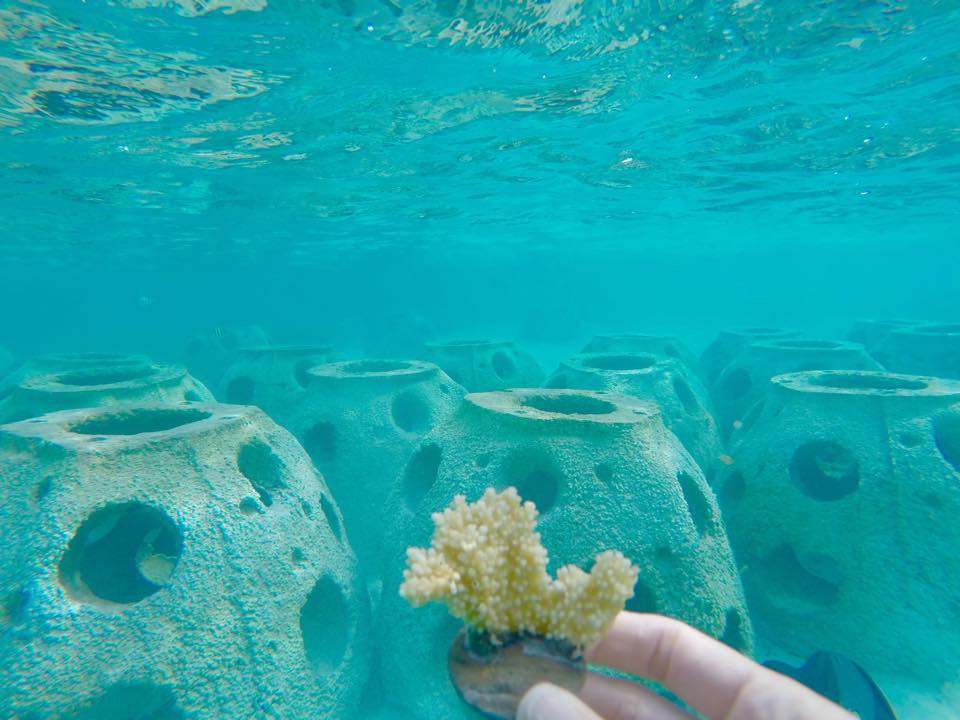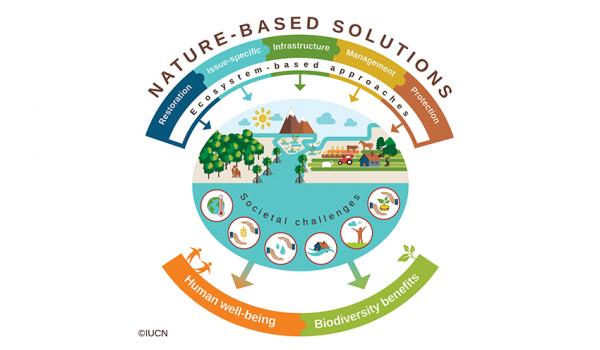ES Caribbean organized the last week of February 2015 a week long workshop to plant imperiled corals on the Reef Balls our team deployed last year in March.
A group a 10 volunteers joined the workshop and planted a total of 224 corals on the Reef Balls over the course of the week.
A week after the workshop, two volunteers, Cheri Wood and Nina Sanchez, came back to monitor the transplants and recorded a fantastic 90% survival rate, making this workshop and incredible boost for the local reef system, adding structure (and hence habitat) to the reef, for the endangered corals (salvaging their gene pools) but of course also for the enjoyment of the daily snorkelers.
If you want to join us next time we organize a trip, keep an eye the FB pages of EScaribbean, The Reef Ball Foundation and Coral Reef Eco travel!
Noelle van der Straaten describes her experience with us:
I love all things ocean (fish, waves, turtles and of course CORAL!) and wanted to spend my vacation doing something for the ocean. So when a friend of mine asked if I would be interested in joining her in signing up for Reef Ball Foundation’s trip to Paradise Cove, on Grand Bahama island, I immediately thought yes! The Reef Ball Foundation is a nonprofit organization that rehabilitates ocean reef ecosystems by constructing artificial reefs and rescuing imperiled corals to replant on these reefs. The intentions are to provide erosion control and to increase a coral reef’s hard coral cover which means more housing for fish and other marine species! Presently, the oceans and near shore areas are experiencing many challenges such as:
• climate change
• overfishing
• pollution
• loss of habitat for marine species
These impacts greatly affect fish and other marine species and organizations such as the Reef Ball Foundation, offer volunteers an opportunity to work on projects that help restore natural ecosystems. Considering the fact that the Caribbean houses 9% of the world’s coral reefs and only about 1/6 of this remains and that these reefs generate more than US$3 billion annually from tourism and fisheries, it is vital to protect and restore these ecosystems!
The location of this project, Paradise Cove right next to Deadman’s Reef, is the location of a beautiful little resort with 2 villas for rent, a bar with food and snorkel and kayak equipment to rent out. 
The ESCaribbean organizer made sure all of the volunteers were well taken care of and we even toured the local brewery one day when weather conditions were too windy to work on the project. I spent a week with a great group of other volunteers, learning to mix cement, pouring this into silicone pods, delicately handling live coral and placing coral fragments in the correct orientation in cement. This is done in a timely fashion to reduce the stress of the corals. By day 3, the other volunteers and I were getting the process down! We also learned how to identify imperiled coral and which corals are best to propagate. Lastly, we learned how to affix the coral plugs into the reef balls, which was the most fun part for me as I love being in the water!
I saw larger fish inside of the reef balls, meaning it is accomplishing one of its goals – increasing habitat for marine species. I also saw turtles, parrotfish and a stingray. It was a great experience to participate in this project and to be part of rehabilitating the local coral reef ecosystem; I can’t wait to visit again in a few years to see the results!
Written by Noelle van der Straaten.
Noelle is a Marine Ecologist, an avid ocean explorer and loves all things marine. To learn more about her ocean adventures, please visit her website.





